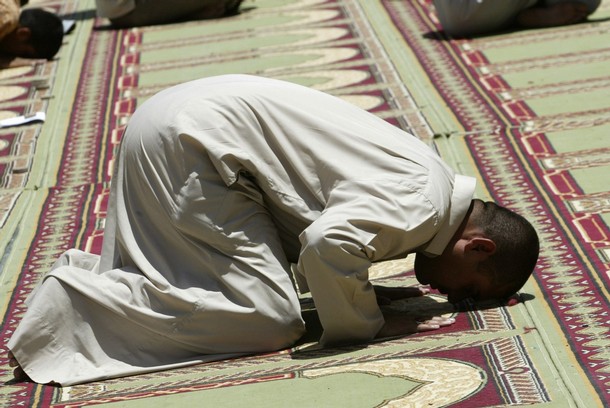Is Repentance Accepted From Intentionally Killing a Believer?
Question: Is there repentance for murder because I’ve read that Ibn Abbas had said that there is no repentance for the intentional killing of a believer. But on the contrary, why do the majority of the scholars say that there is repentance for the intentional murder of a believer? thanks
Answer:
In the Name of Allah, the Most Merciful and Compassionate
Repentance
The narrations that you quoted must be understood in their context. Allah Most High says, “O My slaves who have wronged themselves! Do not lose hope in the mercy of Allah. Verily Allah forgives all sins. Surely He is the All-Forgiving and Merciful.” [Qur’an; 39:53]
Allah Most High says, “Verily Allah does not forgive that partners be associated with Him and He forgives all else for whom He wishes…” [Qur’an; 04:48]
Thus if we understand the following verse within the context of the above we will understand the matter clearly.
Allah Most High says, “And whoever kills a Believer intentionally then their recompense is Hell-Fire, abiding therein forever; and upon them is the anger of Allah and His curse and for them is a painful punishment.” [Qur’an; 04:93]
Regarding the verse ‘whoever kills a Believer intentionally…’
Tafsir of Fakhr al-Din al-Razi
In the commentary of this verse, Fakhr al-Din al-Razi (may Allah have mercy on him) says,
“Know that we say (regarding this verse, the following): This verse is specific (i.e. not general) in two situations.
The first is that intentional killing can be in a manner that is not unjust, such as retribution (Qisas). For, in this case, the threat (mentioned in the verse) could never apply.
The second is that the intentional killing was done in an impermissible manner if one repents from it, the threat also does not apply.
Thus if these two situations can be specified then we affirm that the generality of the verse is limited in regards to Divine pardon with the following verse as proof: “and He forgives all else for whom He wishes.” [Ref: al-Razi; Mafatih al-Ghaib]
Tafsir of Imam al-Suyuti
Imam al-Suyuti (may Allah have mercy on him) brings the following narrations regarding this verse,
(A) “Ibn Abi Hatim narrates from the transmission of al-Dhahhak from Ibn ‘Abbas (may be pleased with them) that He would say, “His recompense is Hell-Fire if he is taken to account. (I.e. this is in regard to the Believer not the Disbeliever) Thus if Allah wants He will pardon the Believer and if He so wishes He punishes.”
(B) “Ibn Abi al-Nujud transmits from Ibn ‘Abbas (may Allah be pleased with them) regarding the above verse, “It is His (i.e. Allah’s) recompense of them. If He wants He punishes and if He wants He forgives.”
(C) Imam al-Baihaqi narrates in al-B’ath from Abi Mujliz regarding the verse, “It is his recompense. And if Allah wishes to forgo taking him into account He can do so.”
(D) Ibn al-Mundhir narrates from ‘Aun bin ‘Abdullah regarding the verse, “It is his recompense if Allah takes him into account.”
[Ref: al-Suyuti; al-Durr al-Manthur]
Allah Forgave the Man who Killed 99 people
The story of the man who killed 99 people is more than sufficient to clarify this point
In summary, nothing can come between a person and repenting to Allah Most High. If their repentance is sincere that is.
The Prophet (may Allah bless him and give him peace) said, “The one who repents from a sin is like one who has no sin.” [al-Baihaqi]
These verses, however, clearly denote the severity of such a heinous action. And for the one who does so and does not sincerely repent, a bad ending is feared for them.
Our teacher, the Mufti of Tarim, Habib ‘Ali al-Mashur (may Allah preserve him) mentioned regarding the above verse – that one of the biggest causes for a bad ending in this life and possibly for one to lose their faith prior to death is to kill a Believer.”
Hope this helps
Allahu A’alam
[Shaykh] Yusuf Weltch
Checked and Approved by Shaykh Faraz Rabbani
Shaykh Yusuf Weltch is a graduate from Tarim; a student of Habib Umar and other luminaries; and authorized teachers of the Qur’an and the Islamic sciences.
